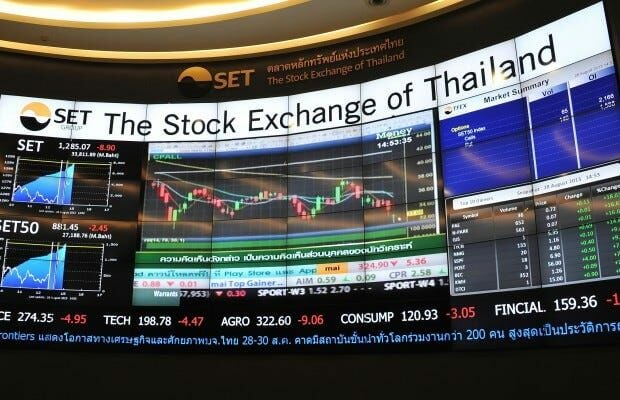SET unveils plan to boost foreign and family business investments

The Stock Exchange of Thailand (SET) unveiled a strategic business plan targeting foreign industries operating in Thailand and family businesses, aiming to boost market capitalisation. SET executives highlighted the shift in investment trends, particularly post-pandemic, with technology stocks rising as traditional businesses adapt to the digital age.
SET officials noted that the Thai market has faced trust and confidence issues with small-cap stocks, leading to significant fund outflows. To address this, the SET has implemented stricter measures against naked short selling, program trading, and high-frequency trading (HFT) to enhance transparency and ensure equitable growth for all investor groups.
New regulations aimed at increasing investor confidence, especially in program trading, are set to be implemented in the third quarter. These measures come as foreign investors are anticipated to return to Thai stocks in the second half of the year, bolstered by an economic recovery driven by tourism.
SET President Pakorn Peetathawatchai pointed out promising signs from foreign investors. A recent SET roadshow in Hong Kong at the end of May revealed sustained foreign interest in investments in Thailand, despite the shrinking size of the Thai stock market, said Pakorn
“Foreign investors have continuously invested in Thailand as the Thai market offers various options for fund mobilisation, not only for large firms but also small enterprises and startups.”
Senior Executive Vice President of the SET, Manpong Senanarong, expressed the bourse’s interest in attracting foreign companies considering business relocation, particularly those already operating in Thailand. This includes sectors like clean energy, electric vehicles (EVs), and government-promoted S-curve industries.
Entering Thai markets
He cited Line Man, which last year appointed advisors for an IPO of its food delivery business in Thailand, with a listing planned for 2025. Manpong also mentioned Prada’s precedent of relocating part of its business from Milan by debuting an IPO on the Hong Kong stock exchange.
“Line Corp is interested in entering the Thai stock market, partly because its business in Thailand has been growing well.”
The SET is also focusing on family businesses, which comprise a significant portion of Thailand’s corporate landscape. Manpong noted that many family businesses and local brands were listed on the stock market from 2013 to 2018. As these businesses experience substantial growth, more may consider following suit.
Compared to other regional bourses, such as the rapidly growing Vietnamese market, Thailand offers advantages in terms of legal framework, financial institution stability, and favourable regulations for outbound money transfers.
Challenges to the Thai stock market’s growth include geopolitical tensions, high interest rates, uneven economic recovery, and climate change impacts. Pakorn mentioned that foreign operators in tourism and related sectors are interested in relocating to Thailand or investing in Thai stocks.
“The problem is we have little supply for them to invest in, or the stocks are too small… We must accelerate the expansion of these businesses to support increasing demand, including in the ‘well-being economy’ related to eateries, travel, hotels, and healthcare.”
Geopolitical conflicts often impact oil prices, affecting business costs. Pakorn noted that if interest rates are adjusted to a more appropriate level in the second half of the year, it could attract more investment in high-risk assets, including stocks.
Climate change also poses a threat to Thai GDP as it can impact crop output and exports. Pakorn added that local economic growth remains uneven, with tourism currently leading the way, reported Bangkok Post.
Latest Thailand News
Follow The Thaiger on Google News:


























